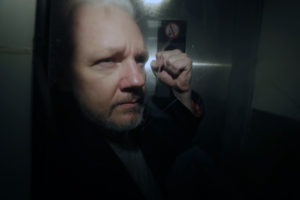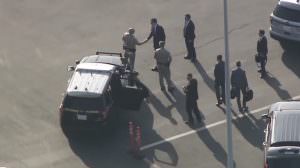Pentagon Monitored Student Groups’ E-mail
The Department of Defense monitored e-mails from college students who were planning protests against the Iraq war and against the military's "don't ask, don't tell" policy. The Pentagon apparently started digging after receiving tips through a website used for soliciting anti-terror tips from civilians and military personnel. (Link - reg req'd)The Department of Defense monitored e-mails from college students who were planning protests against the Iraq war and against the military’s “don’t ask, don’t tell” policy. The Pentagon apparently started digging after receiving tips through a website used for soliciting anti-terror tips from civilians and military personnel. (Link – reg req’d)
Your support matters…The Chronicle of Higher Education:
The Department of Defense monitored e-mail messages from college students who were planning protests against the war in Iraq and against the military’s “don’t ask, don’t tell” policy against gay and lesbian members of the armed forces, according to surveillance reports released last month. While the department had previously acknowledged monitoring protests on campuses as national-security threats, it was not until recently that evidence surfaced showing that the department was also monitoring e-mail communications.
The surveillance reports — which were released to lawyers for the Servicemembers Legal Defense Network on June 15 in response to a Freedom of Information Act request filed by the organization last December — concern government surveillance at the State University of New York at Albany, Southern Connecticut State University, the University of California at Berkeley, and William Paterson University of New Jersey. The documents contain copies of e-mail messages sent in the spring semester of 2005 detailing students’ plans to protest on-campus military recruitment.
The reports are part of a government database known as Talon that the Department of Defense established in 2003 to keep track of potential terrorist threats. Civilians and military personnel can report suspicious activities through the Talon system using a Web-based entry form. A Pentagon spokesman, Greg Hicks, would not verify whether the reports released last month were follow-ups to tips from military or government personnel, or from civilians at the universities.
Independent journalism is under threat and overshadowed by heavily funded mainstream media.
You can help level the playing field. Become a member.
Your tax-deductible contribution keeps us digging beneath the headlines to give you thought-provoking, investigative reporting and analysis that unearths what's really happening- without compromise.
Give today to support our courageous, independent journalists.



You need to be a supporter to comment.
There are currently no responses to this article.
Be the first to respond.